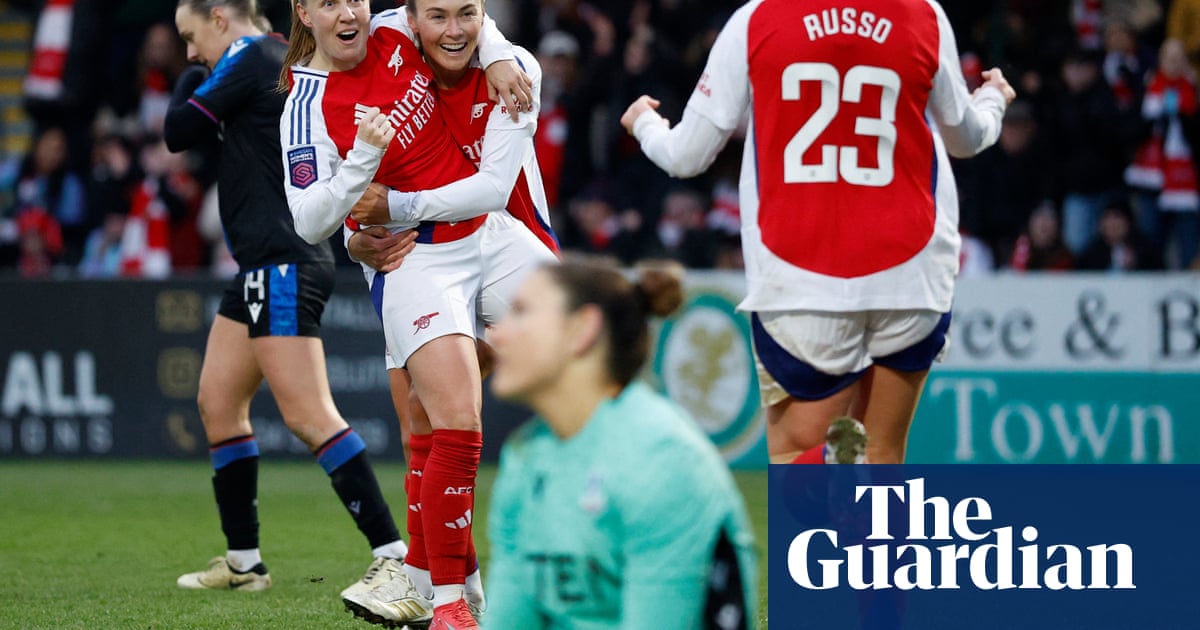Teams will continue to be relegated from the Women’s Super League and Women’s Championship beyond 2026, the Guardian can reveal, with theidea of temporarily removing relegationno longer being pursued.
The company that runs the top two women’s divisions in England, Women’s Professional Leagues Limited (WPLL), had discussed a four-year pause to relegation to grow both leagues from 2026. That was one of a range of options that clubs and other stakeholders have been consulted on this season.
It is understood no decision has been taken about how the formats will change from 2026. The league is believed to be exploring several innovative alterations that could make the top of the women’s pyramid look very different from the English men’s format.
WPLL did not wish to comment when approached by the Guardian. In March the WPLL’s chief executive, Nikki Doucet, did not deny that a relegation pause was being exploredbut said: “We believe promotion and relegation is a great thing. It adds jeopardy and excitement.”
The idea was never submitted to the Football Association for ratification. Sources have said there was opposition to a relegation pause among FA figures and at Sky Sports, which broadcasts most live WSL fixtures. On Wednesday, the Football Supporters’ Association published the results of a survey of women’s football fans, which showed that 53.8% of supporters surveyed opposed pausing relegation and 90.2% agreed that “promotion and relegation are a vital part of the integrity of the pyramid”. A large majority (84%) supported expanding the divisions.
The FSA’s head of women’s football, Deborah Dilworth, said: “We thank those fans who took the time to provide us with their feedback on these vital issues, and will ensure that the fans’ voice is heard by the game’s decision makers as the consultation process continues. While it’s clear that supporters are in favour of an expanded top two tiers, they’ve been equally clear that it can’t come at the expense of competitive football and the principles of earning your spot at the top of the pyramid.”
The WSL was a closed league without relegation when it launched in 2011 as a breakaway league.
Sign up toMoving the Goalposts
No topic is too small or too big for us to cover as we deliver a twice-weekly roundup of the wonderful world of women’s football
after newsletter promotion
Currently one team are relegated to the Championship and one promoted, which this summer will be Crystal Palace andLondon City Lionessesrespectively. At the bottom of the Championship, two go down but this season Sheffield United will be the only relegated team afterReading’s withdrawalfrom the second tier for financial reasons last summer. Coming up from the third tier are Ipswich Town and Nottingham Forest, leading to 12 teams in each of the two top divisions.
